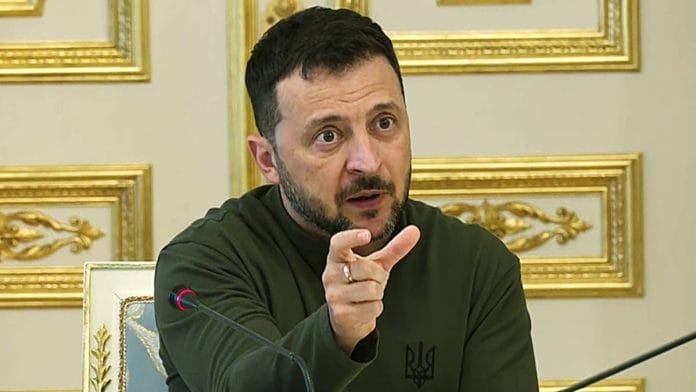New Delhi: Russian energy giant Gazprom has announced that its supplies of gas to Europe via Ukraine have been halted after a deal with Kyiv expired on 31 December. The expiration of the deal ends decades of transit of cheap Russian gas to European countries.
“We have stopped the transit of Russian gas, this is a historic event. Russia is losing markets, it will suffer financial losses. Europe has already decided to abandon Russian gas. And the European initiative REPowerEU envisages exactly what Ukraine has done today,” German Galushchenko, Ukraine’s minister for energy, said in a statement Wednesday.
Slovakia, Austria and Hungary are some of the countries that will be affected by the expiration of the deal, while Moldova— a candidate for membership of the European Union (EU)—is bracing for an energy crisis.
“On 1 January, 2025, at 8 am Moscow time, the documents signed on 30 December, 2019, expired: the agreement between Gazprom and Naftogaz of Ukraine on organising the transportation of Russian gas through the territory of Ukraine,” said Gazprom in an early morning statement Wednesday on the social media platform Telegram.
“Due to the repeated and explicit refusal of the Ukrainian side to extend these agreements, Gazprom was deprived of the technical and legal ability to supply gas for transit through the territory of Ukraine from 1 January, 2025,” it added.
For Moscow and Gazprom, the symbolic closure of supplies of gas to the EU is one of the outcomes of its war with Ukraine, which has raged on for almost three years, and has forced Russia to look elsewhere for customers.
In 2021, the year before major escalation of the war, Russia accounted for over 40 per cent of the total supply of gas to the EU. In 2023, this fell to around 8 per cent, according to data from the bloc.
The loss of EU countries as customers has hurt the bottomline of Gazprom, with the energy giant posting a loss of nearly $7 billion in 2023–its first since 1999. In the first nine months of 2024, the firm announced losses amounting to roughly $3.2 billion.
The US and Norway are now the largest exporters of gas to the EU, while gas from North Africa, Qatar and the UK has also helped stabilise the regional bloc’s energy markets.
In the summer of 2022, Moscow’s attempted weaponisation of gas supplies to select EU countries saw prices of the commodity rise almost 10 times above the average, which led to a spike in costs to consumers, as well as inflation. This spike has impacted the European economy in other ways as well.
Russia still has the TurkStream pipeline through the Black Sea operational, which can transport gas to Turkey and some other European countries such as Hungary and Serbia.
Also Read: Russia-Ukraine war to intensify. India has a year to bring peace—start with a conference
The impact
The loss of cheap Russian gas will cost Slovakia close to $180 million to find alternative supply, its economy ministry said Tuesday.
Slovakian Prime Minister Robert Fico, seen as one of the strongest supporters of Russian President Vladimir Putin in the EU, has been at loggerheads with Kyiv over the last week in a bid to pressure Ukraine to extend the gas deal.
Fico, who made an unannounced visit to Russia just before Christmas, warned Kyiv of “reciprocal measures”, including cutting off the supply of power to Ukraine at the height of its cold winters. Ukrainian President Volodymyr Zelenskyy, however, remained undeterred.
Bratislava, which too has been pressuring Kyiv to extend the deal, is motivated by its own profits from reselling cheap Russian gas, media reports said.
Politico, quoting a Ukrainian official, reported that Slovakia has been making close to half a billion dollars per year through its energy deals with Russia.
Poland has offered to step in to supply electricity to Kyiv in the event of Fico carrying out his threat of cutting supplies to Ukraine.
Gazprom is set to lose close to $5 billion in revenue from the expiration of the gas deal, while Ukraine, which earned transit fees from Russia of around $800 million annually, will lose the entire amount as well.
However, Moldova, a country of 2.5 million people in eastern Europe, is set to be the most impacted, given that Russia supplies the majority of gas for it to generate electricity.
The country declared a state of emergency in the energy sector for 60 days, starting 16 December, with pro-EU President Maia Sandu accusing Moscow of attempting to destabilise Moldova.
(Edited by Nida Fatima Siddiqui)
Also Read: Don’t look at Russia-Ukraine war from Western lens. Moscow isn’t being weakened






